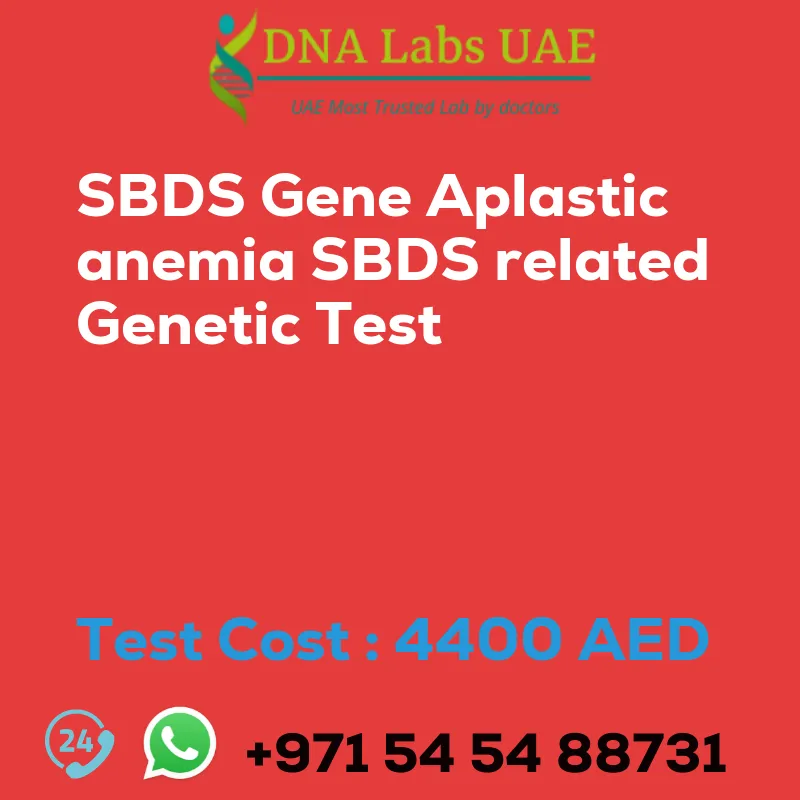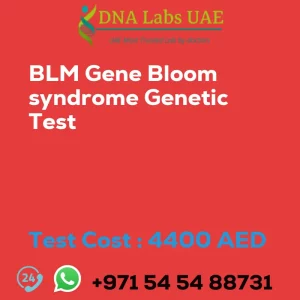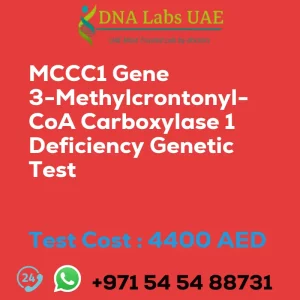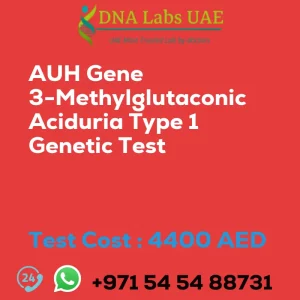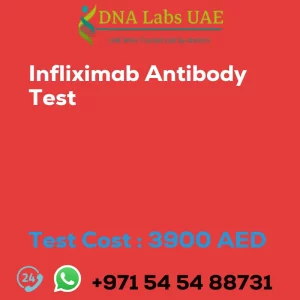SBDS Gene Aplastic Anemia SBDS Related Genetic Test
Test Name: SBDS Gene Aplastic Anemia SBDS Related Genetic Test
Components: Blood or Extracted DNA or One drop Blood on FTA Card
Price: 4400.0 AED
Report Delivery: 3 to 4 Weeks
Method: NGS Technology
Test Type: Metabolic Disorders
Doctor: General Physician
Test Department: Genetics
Pre Test Information: Clinical History of Patient who is going for SBDS Gene Aplastic Anemia, SBDS Related NGS Genetic DNA Test. A Genetic Counselling session to draw a pedigree chart of family members affected with Aplastic Anemia, SBDS Related.
Test Details:
Aplastic anemia is a rare and serious blood disorder characterized by a decrease in the production of red blood cells, white blood cells, and platelets in the bone marrow. It can be caused by a variety of factors, including genetic mutations. The SBDS gene is associated with a specific type of aplastic anemia called Shwachman-Diamond syndrome (SDS). Mutations in the SBDS gene are responsible for the majority of cases of SDS. SDS is a rare inherited disorder that affects various organs and systems in the body, including the bone marrow, pancreas, and skeletal system.
Next-generation sequencing (NGS) genetic testing is a technique used to analyze multiple genes simultaneously to identify mutations or variations that may be associated with a specific disease or condition. In the case of SBDS-related aplastic anemia, NGS genetic testing can be used to detect mutations in the SBDS gene that may be responsible for the development of the disease.
NGS genetic testing for SBDS-related aplastic anemia typically involves obtaining a blood or saliva sample from the individual undergoing testing. The sample is then sent to a laboratory where the DNA is extracted and sequenced using NGS technology. The sequencing data is then analyzed to identify any mutations or variations in the SBDS gene.
The results of the NGS genetic test can help confirm a diagnosis of SBDS-related aplastic anemia and provide valuable information for treatment and management of the condition. It can also help identify other family members who may be at risk of developing the disease.
It is important to note that NGS genetic testing is not a diagnostic tool on its own. The results of the test should be interpreted by a healthcare professional who specializes in genetics or genetic counseling. They can provide guidance on the implications of the test results and help with further management and treatment options.
| Test Name | SBDS Gene Aplastic anemia SBDS related Genetic Test |
|---|---|
| Components | |
| Price | 4400.0 AED |
| Sample Condition | Blood or Extracted DNA or One drop Blood on FTA Card |
| Report Delivery | 3 to 4 Weeks |
| Method | NGS Technology |
| Test type | Metabolic Disorders |
| Doctor | General Physician |
| Test Department: | Genetics |
| Pre Test Information | Clinical History of Patient who is going for SBDS Gene Aplastic anemia, SBDS related NGS Genetic DNA Test A Genetic Counselling session to draw a pedigree chart of family members affected with Aplastic anemia, SBDS related |
| Test Details | Aplastic anemia is a rare and serious blood disorder characterized by a decrease in the production of red blood cells, white blood cells, and platelets in the bone marrow. It can be caused by a variety of factors, including genetic mutations. The SBDS gene is associated with a specific type of aplastic anemia called Shwachman-Diamond syndrome (SDS). Mutations in the SBDS gene are responsible for the majority of cases of SDS. SDS is a rare inherited disorder that affects various organs and systems in the body, including the bone marrow, pancreas, and skeletal system. Next-generation sequencing (NGS) genetic testing is a technique used to analyze multiple genes simultaneously to identify mutations or variations that may be associated with a specific disease or condition. In the case of SBDS-related aplastic anemia, NGS genetic testing can be used to detect mutations in the SBDS gene that may be responsible for the development of the disease. NGS genetic testing for SBDS-related aplastic anemia typically involves obtaining a blood or saliva sample from the individual undergoing testing. The sample is then sent to a laboratory where the DNA is extracted and sequenced using NGS technology. The sequencing data is then analyzed to identify any mutations or variations in the SBDS gene. The results of the NGS genetic test can help confirm a diagnosis of SBDS-related aplastic anemia and provide valuable information for treatment and management of the condition. It can also help identify other family members who may be at risk of developing the disease. It is important to note that NGS genetic testing is not a diagnostic tool on its own. The results of the test should be interpreted by a healthcare professional who specializes in genetics or genetic counseling. They can provide guidance on the implications of the test results and help with further management and treatment options. |

